Most U.S. adults (73%) say they see inaccurate election news at least somewhat often, including 37% who say they see this extremely or very often. Only 3% of Americans say they don’t see inaccurate news about the election at all.
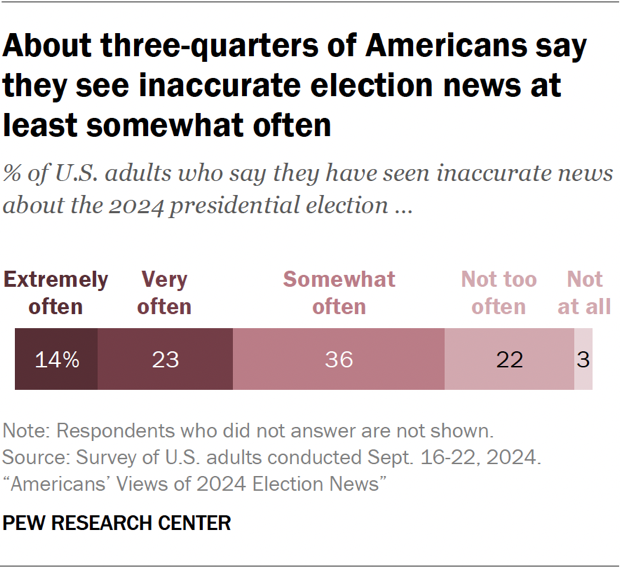
By party
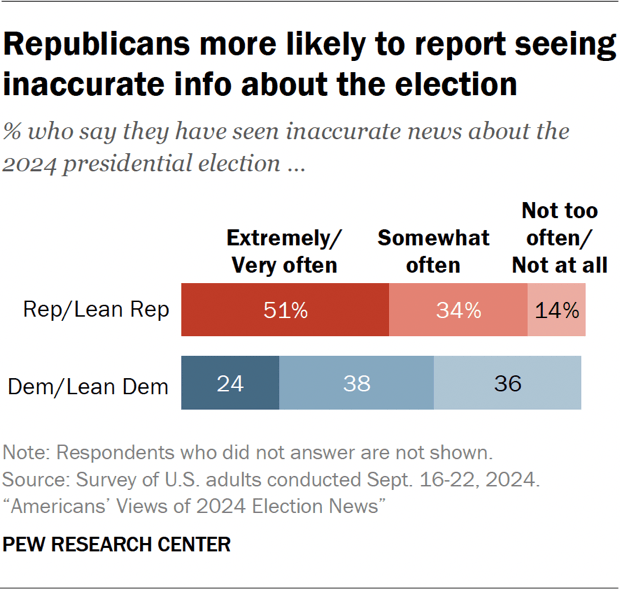
Republicans and independents who lean toward the Republican Party are about twice as likely as Democrats and Democratic leaners to say they come across inaccurate election news extremely or very often (51% vs. 24%). Meanwhile, about a third of Democrats (36%) say they see inaccurate election news not too often or not at all, while just 14% of Republicans say the same.
Conservative Republicans are more likely than Republicans who describe themselves as moderate or liberal to report seeing inaccurate news coverage about the election extremely or very often (60% vs. 37%).
Hearing inaccurate election news in conversation

News coverage is not the only place where Americans are seeing or hearing information about the presidential election that they consider inaccurate. About six-in-ten U.S. adults (58%) say they hear people share inaccurate information about the election in conversation at least somewhat often, including 27% who hear this extremely or very often.
There are not substantial differences between the two major political parties on this question.
Accuracy of news from primary sources
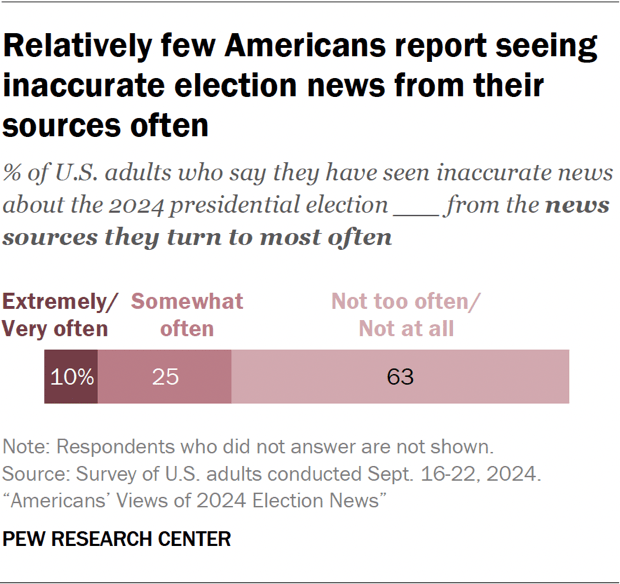
Just 10% of U.S. adults report seeing inaccurate news coverage from their most-used sources extremely or very often, and 25% say they see this somewhat often.
A majority (63%) say they have not seen inaccurate news coverage of the election often or at all from their most commonly used sources.
By party
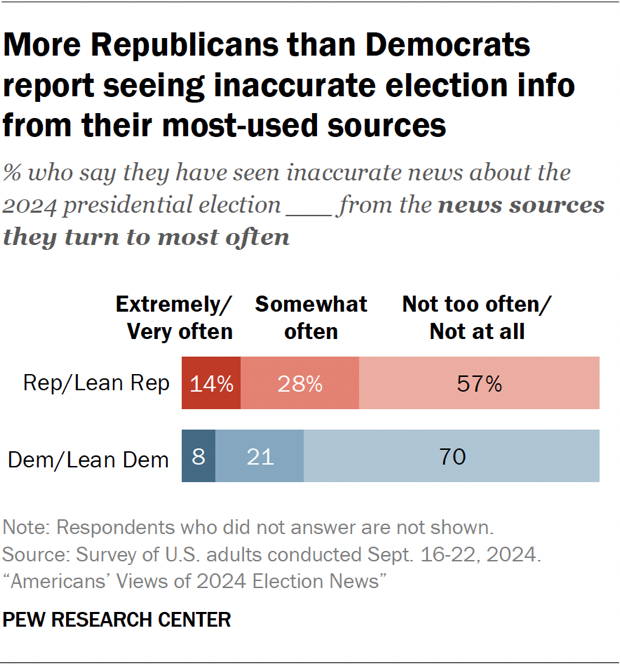
Republicans are more likely than Democrats to say they see inaccurate election news from the sources they turn to most often. Still, fewer than half of Republicans (42%) say they see this at least somewhat often, including just 14% who say they extremely or very often see inaccurate election coverage from their primary sources.
Determining what is true and what’s not
Americans are split over how easy it is to discern what’s true about the presidential campaign.
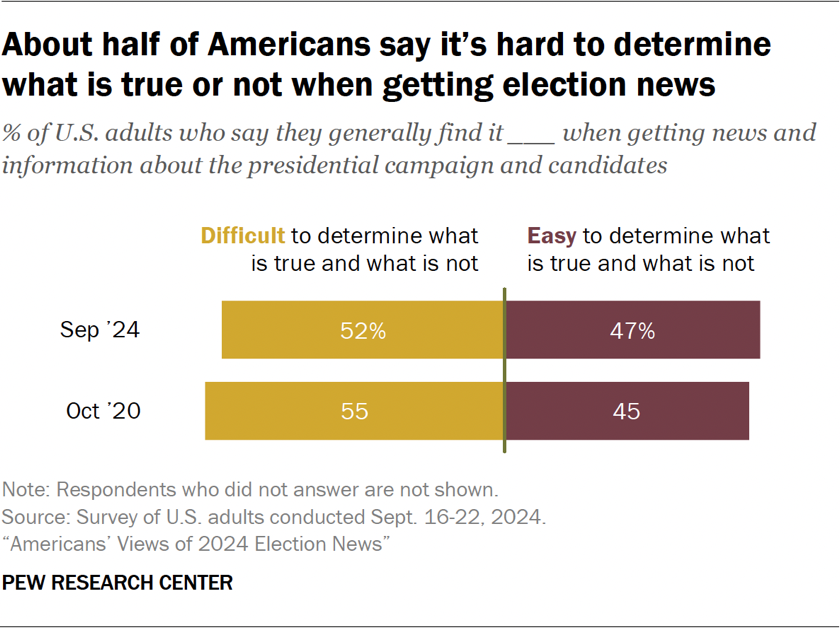
Around half (52%) say they generally find it difficult to determine whether election news is true or not, slightly more than the share who find it easy to determine (47%).
These numbers are similar to the last time we asked this question in October 2020, when 55% of U.S. adults said it was difficult to distinguish truth from fiction.
By party and ideology
Just as they are more likely to report seeing inaccurate information about the election, Republicans also are more likely to say they find it tough to know what is true.
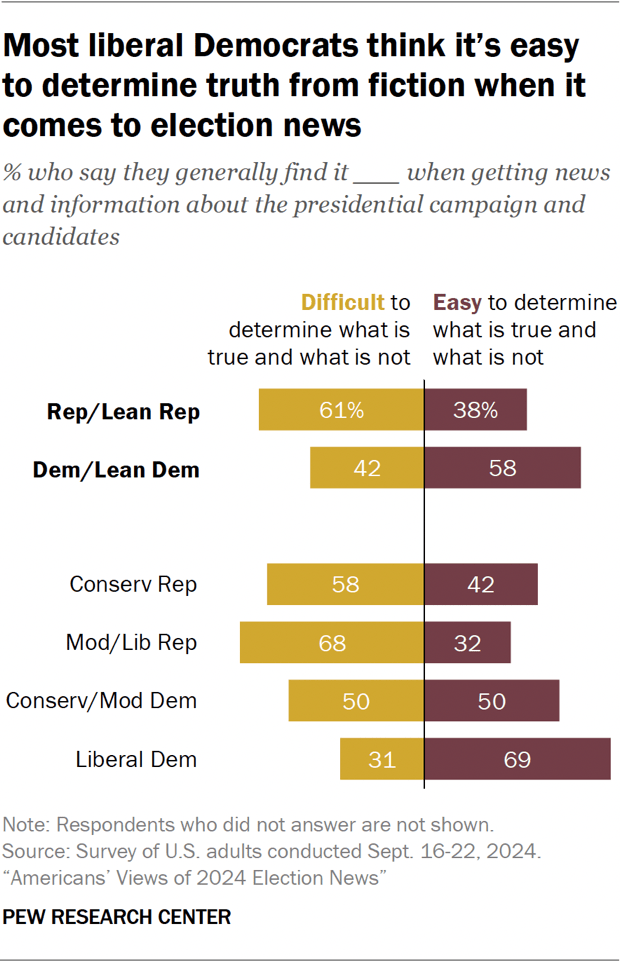
Most Republicans (61%) say it is difficult to determine what is true and what is not, compared with 42% of Democrats who express this view. A majority of Democrats (58%) say they find it easy to distinguish truth from fiction when it comes to election news.
Views also vary within each party by ideology:
- Moderate or liberal Republicans are more likely than conservative Republicans to say it’s difficult to determine whether election-related information is true or not.
- Among Democrats, liberals are especially likely to find it easy to sort out truth from fiction.




